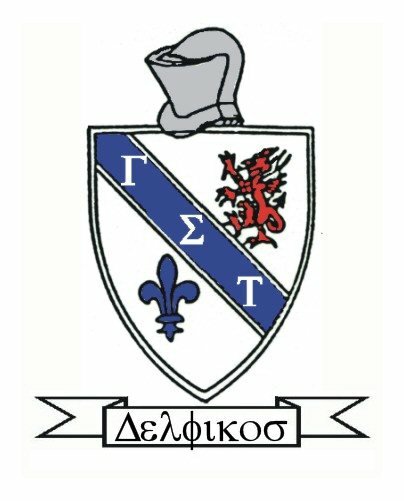
![]()
History
The Delphic Society was founded in 1871 at the Geneseo State Normal School in upstate New York. With affiliations at other schools, the literary society became known as the Delphic Fraternity. It had chapters at Oneonta, Jamaica, Cortland, New Paltz, Plattsburgh, Potsdam NY, and Mansfield, Pennsylvania. By the late 1930s, only the Zeta chapter at New Paltz remained active. The Theta chapter at Binghamton University was founded in 2003. An interest group was formed in the spring of 2009 at the University of Virginia. The organization was initially incorporated in the state of New York in 1962.
The Zeta chapter of Delphic has gone through many phases since its formation in 1899. In the 1950s, it had a brief affiliation with the national organization of Sigma Tau Gamma. In the 1960s it was the largest and most respected fraternity on the New Paltz campus. However in the early 1970s, because of turbulent times and the decline of student interest in Greek life, the fraternity became inactive.
In the fall of 1986, twelve young men became interested in re-establishing the Delphic Fraternity. They were also interested in creating the first multicultural Greek letter organization at New Paltz. At the time, only predominantly white and predominantly black organizations existed. Of the twelve men interested in Delphic, five were white, five where Latino, one was African-American and one was Asian-American. With hard work and determination, the group re-established a prestigious local organization and created the first multicultural fraternity on campus. In March of 1987, the College at New Paltz fully recognized the Delphic of Gamma Sigma Tau Fraternity.
Since 1987 the fraternity has promoted multiculturalism via community events, forums, and relationships with other Greek letter organizations. We have also incorporated multicultural themes into our associate membership program. Our membership since the 1960s has included brothers of African, Arabic, Asian, Caribbean, German, Greek, Irish, Israeli, Italian, Latino, and Russian descent.
We are pioneers in the concept of multicultural Greek
life and will continue to promote the idea of multiculturalism well into
the 21st century.

![]()
